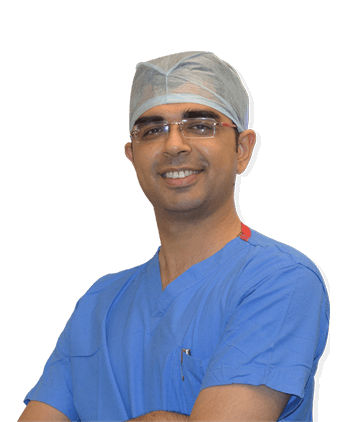An endoscopy is a procedure where the inside of your body is examined using an instrument called an endoscope.
An endoscope is a long, thin, flexible tube that has a light source and camera at one end. Images of the inside of your body are relayed to a television screen.
Endoscopes can be inserted into the body through a natural opening, such as the mouth and down the throat, or through the bottom.
An endoscope can also be inserted through a small cut (incision) made in the skin when keyhole surgery is being carried out.
Endoscopy
An endoscopy can be used to:
- Investigate unusual symptoms
- Help perform certain types of surgery
An endoscopy might be recommended to investigate the following symptoms:
- Heartburn/ Acidity/ Regurgitation
- Difficulty swallowing (dysphagia)
- Persistent abdominal pain
- Chest pain that isn’t caused by heart-related conditions
- Persistent nausea and vomiting
- Unexplained weight loss
- Vomiting blood
- Persistent diarrhoea
- Blood in your stools
Before having an endoscopy
Depending on what part of your body is being examined, you may be asked to avoid eating and drinking for several hours beforehand. It will usually be carried out on an outpatient basis, which means you won’t have to stay in hospital overnight.
You may be given a laxative to help clear stools from your bowels if you’re having a colonoscopy to examine the large intestine or a sigmoidoscopy to examine the rectum and lower part of the bowel.
If you’re taking a medicine to thin your blood, such as warfarin or clopidogrel, you may need to stop taking it for a few days before having an endoscopy. This is to prevent excessive bleeding during the procedure. However, don’t stop taking any prescribed medicine unless your doctor advises you to do so.
The endoscopy procedure
An endoscopy isn’t usually painful, and most people only experience some mild discomfort, similar to indigestion or a sore throat.
The procedure is usually carried out while you’re conscious. You may be given a local anaesthetic to numb a specific area of your body. This may be in the form of a spray or lozenge to numb your throat, for example. You may also be offered a sedative to help you relax and make you less aware of what’s going on around you.
In the examination room you will be made comfortable on a couch, resting on your left side. A nurse will stay with you throughout the test. To keep your mouth slightly open, a plastic mouthpiece will be put gently between your teeth. When the doctor passes the endoscope into your stomach it will not cause any pain, nor will it interfere with your breathing at any time. It may take up to fifteen minutes to examine all the areas of the stomach carefully. During this time some air will be passed down the tube to distend the stomach and allow the doctor a clearer view. The air is sucked out at the end of the test. When the examination is finished the tube is removed quickly and easily.
After an endoscopy
After having an endoscopy, you’ll probably need to rest for about an hour until the effects of the local anaesthetic or sedative have worn off. After an hour or two you can eat and drink normally. You may also feel a little bloated if some of the air has remained in your stomach, but this will pass on its own and need no medication.
If you decide to have a sedative, a friend or relative will need to accompany you to your home after the procedure.
An endoscopy is usually a safe procedure, and the risk of serious complications is very low.Possible complications include:?
- an infection in a part of the body the endoscope is used to examine – this may require treatment with antibiotics
- piercing or tearing (perforation) of an organ, or excessive bleeding – you may need surgery to repair tissue or organ damage; sometimes a blood transfusion may also be needed
- Nausea and vommiting
- a burning sensation at the site of the injection
- saliva or, rarely, small particles of food falling into the lungs, triggering an infection (aspiration pneumonia)
- irregular heartbeat or low blood pressure
- reathing difficulties


